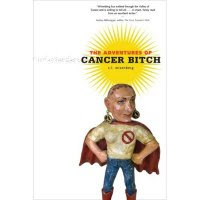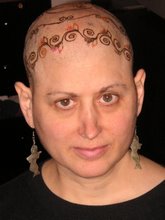 |
| Saint Michael and the dragon, Valencia, c. 1405; I don't know why I'm always drawn to images of him and the dragon; I have one in my office. I like the fact that in any depiction of him there's always the dragon, even if at the very very bottom of the picture. Here, of course, the dragon is shown larger than the would-be saint. |
1. The
Person from Porlock was Coleridge's excuse for not finishing "Kubla Khan." The Person interrupted Coleridge from his poem and so it was published unfinished. How lovely it would be to publish all our work unfinished. The Person from Porlock is Oscar Wilde's
Bunbury--being one character's excuse (Ernest or the other one?) for having to travel to the country. Bunbury was always sick, and the character's aunt (sometimes played campily by a man in the play "The Importance of Being Earnest"), who makes unintentionally funny pronouncements, criticized Bunbury for not making up his mind whether he was going to die. He was less real than Cory Booker's
T-Bone, who turned out, it seems, to be a composite. Commentators have made much of the name Bunbury, pointing to its
gay associations. They've made much of the name Ernest, too, as having the same associations. Alas, in Stoppard's play about E.A. Housman, he asks the question whether Housman was the one more punished than Oscar, because Housman was thwarted in his romance with a straight college friend, and had no others, and Oscar lived and loved. He became himself. He was himself. If the flamboyance was himself. Or were the velvet and lilies and pronouncements, an act to cover up--what? Insecurity? A sense of inferiority from being Irish and gay? From being different? If I throw it in your face that I'm different that you can't throw it in mine. The pre-emptive strike. Which is all the rage these days. Ask North Korea.*
2. The Person from Porlock is the man's
Angel In the House, as written by
Virginia Woolf. The perfect woman, the Angel, takes care of the house and everyone in it and so does not protect her own art. Does not value herself. Does not put herself first. Or second. There is the husband, the children, the house. Not sure of the order. In (Jewish) summer camp there was a sign in or outside the mess hall: 1. God 2. You 3. Me.
That is not the priority of the artist. Unless God=the muse. Then all is in its place. L accuses me of protecting my time but not valuing his. Which is probably true.
Woolf tells us that she had to kill the Angel. Which reminds me of the wrestling of Jacob and his Angel. He had to kill that Angel, too. It would be interesting to see a depiction of Woolf wrestling and killing her Angel.
 |
| Jacob wrestling his Angel, Giulio Benso, 17th century |
3. I wanted to get off Facebook because I was thinking about it too much. It was my billboard, ready to take my least thought. And I mean least. And that is the problem. We think that each small notion must be trumpeted. I have been in Texas. I took a picture today at lunch of a wall of Local Option (restaurant owned by B, whose sister was my high school best friend), which showed the plat of the local area. There was
Confederate House. That's what I took a picture of. My mother remembered it. It was a restaurant, she said, with a big sign when you walked in that said they reserved the right to refuse service to anyone. The servers, she said, were black. The restaurant served Southern food.I wanted to put the picture on Facebook. So I sent it to my husband instead.
4. Exhibit B. Front page of the Houston Chronicle. The above-the-fold story was about taking "heroic" from the phrase "heroic defenders" of the Alamo in state textbooks. Below was a photo of two black men--and they were not criminals! One was a true hero--a firefighter who died in 9/11 and the other was a man who was holding the picture of the dead hero. I wanted to put that on Facebook but instead texted it to my husband.
5. Exhibit C. At services yesterday the family choir (mostly children) sang Adon Olam, one of the most-anticipated songs always because it is the last (my mother's most anticipated line is, You may be seated.), to a familiar tune. It was from "Hamilton" but I couldn't place it, couldn't place it, then did--Here's probably the
originator of the juxto. I wanted to post that on Facebook. But instead sent a link to L and some others.
6. The urge to communicate. The urge to communicate small bits. I was writing in fragments in grad school, 1981-83. My natural pace. I was rarely conventionally linear.
7. The confession: I was reading the famous anonymous op-ed and interrupted myself to go into the other room. How long is it? Maybe 900 words. How could I be so distractable?
8. Coffee can make you concentrate and it can also make you more distractable. By you I mean me. Of course.
9. Still bitter that an editor told me to write something any way I wanted so I wrote it in numbered segments (as I had for a predecessor of his) and he took them out, then complained because I didn't have transitions.
10. Do I read books? I read whole plays. There are people, authors, who, as service to other authors, list the books they're reading in the signature lines of their emails. People ask me what I'm reading and are always disappointed because it's not the literary fictions that are just out. What I've been reading: the Stoppard plays "Arcadia" and "The Invention of Love" (about Housman) and "Indian Ink." I am slowly reading and savoring "The Torch in My Ear," the middle of a three-volume autobiography by Elias Canetti, winner of the Nobel Prize for "Crowds and Power," which I haven't read. I bought the book at the Neue Museum in New York because much of it is about Vienna. I'm toward the end now, about 1929, when he's working temporarily in Berlin and provides little word portraits of John Heartfield (see below) and his brother.
Heartfield (ne Herzfeld) anglicized his name during the Great War to protest German nationalism and anti-British sentiment.
George Grosz, we read, introduced him to Dada. Canetti went to Berlin in order to meet Grosz, as I have yet to do; it will take place in the next few pages I read, I think.
I don't know why Heartfield's work is considered montage rather collage. It may have to do with the arrangement of images of whole objects instead of pieces or to do with photography. I will look it up. No, I will leave it to you to look up. Stopping to look things up (which is what I did when I was writing this blog daily) is the Person from Porlock. The Person from Porlock, instead of knocking on the writer's door, instead moves her hand to Google, like the spirit that moves the heart-shaped device of a Ouija Board.
11. But I am still going to post on Facebook as
Red Fish Studio. It is my marketing activity for my editing and coaching services. You should follow it. Really.
*
When I was an undergraduate, I wanted to ask my history professor about the practice of personifying countries: What did it mean when we said, "England didn't want to do ...." or "Germany declared war"? but I didn't know it was a smart question. Here I used "North Korea" so I wouldn't have to look up the spelling of the Great Leader's name.


















